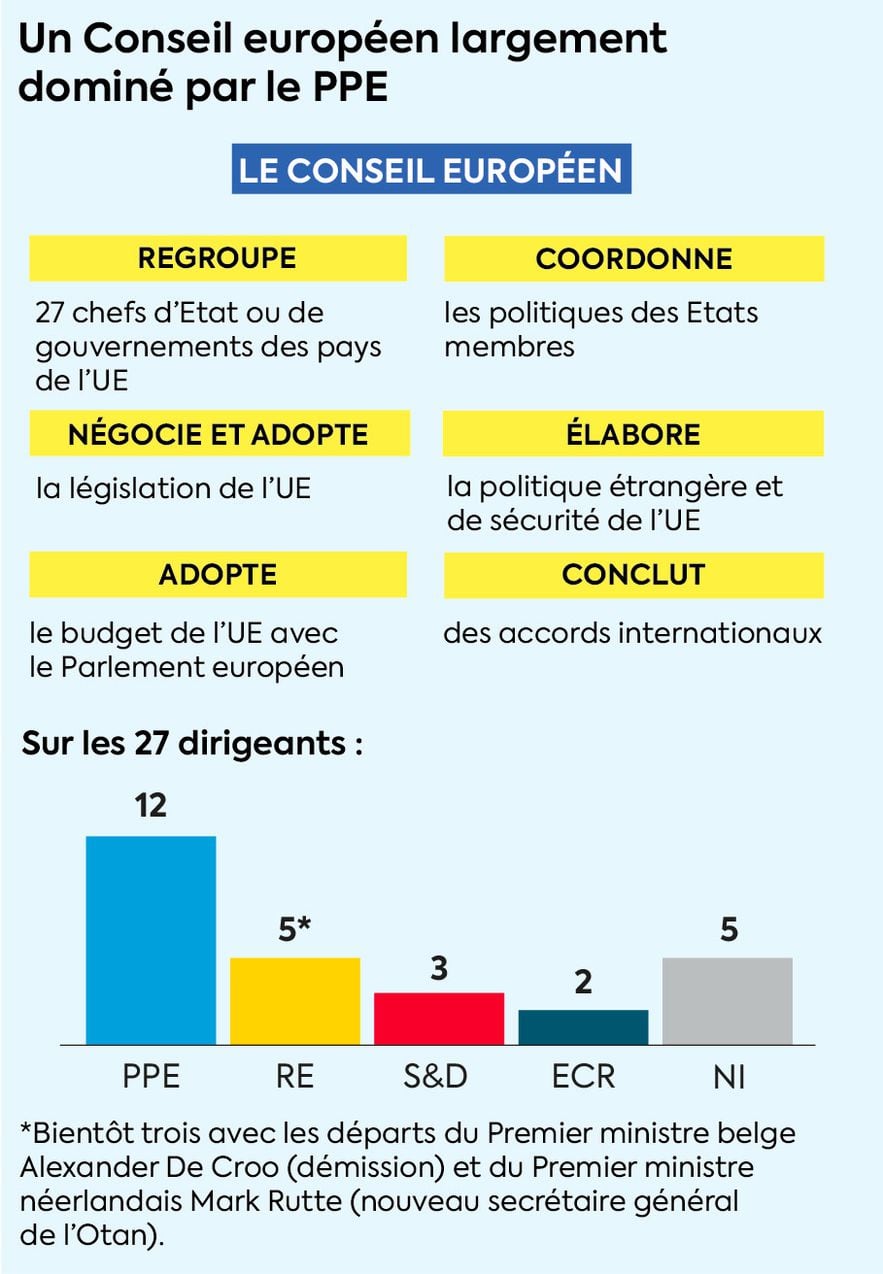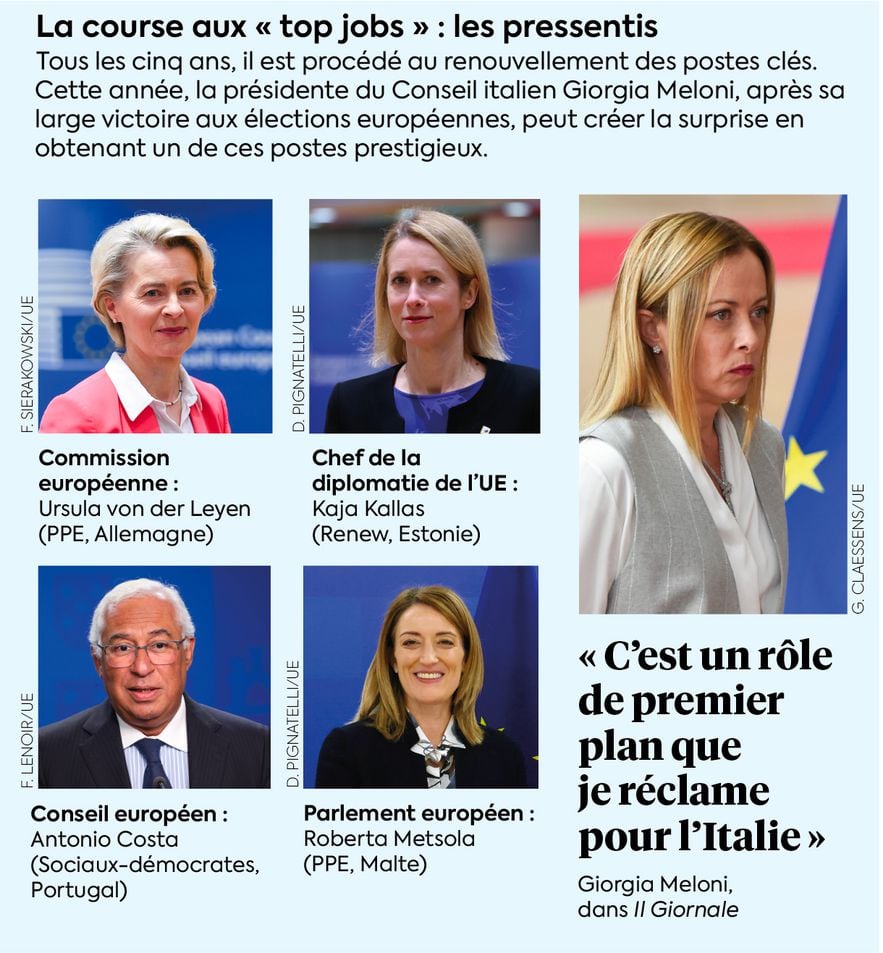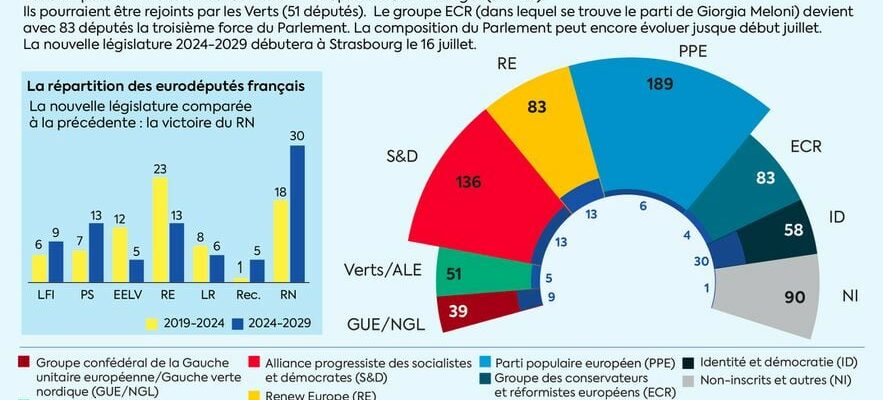This is the new face of Europe following the June 9 elections in the 27 states of the European Union: more right-wing governance, marked by the victory of the European People’s Party. The EPP thus strengthens its domination within the Strasbourg hemicycle, with more than a quarter of the 720 seats, enough to have a lasting influence on major EU policies. By collaborating, on certain issues, with the extreme right?
The new European Parliament
© / The Express
Nationalist parties are in fact making strong progress, like the National Rally in France and Fratelli d’Italia, the party of Italian Prime Minister Giorgia Meloni. Between them, the most right-wing groups in the European Parliament, the European Conservatives and Reformists (CRE) and Identity and Democracy (ID), bring together 141 seats.

A European Council largely dominated by the EPP.
© / The Express
In the light of these new balance of power, French influence clearly pales. The Renew group, where Emmanuel Macron’s party sits, goes from 102 to 74 deputies. At the European Council, bringing together the 27 heads of state and government of the EU, the French president also lost two important allies: Belgian Prime Minister Alexander De Croo resigned after the heavy defeat of his party in the elections Belgian generals on June 9; and his Dutch counterpart Mark Rutte, soon to be appointed Secretary General of NATO.

The race for “top jobs”: the prospects.
© / The Express
